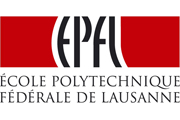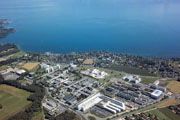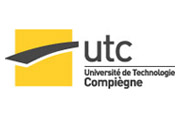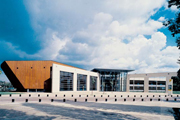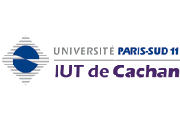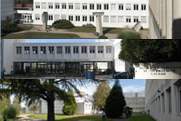Ecole Polytechnique Fédérale de Lausanne : Financial Engineering section
{2010 - 2011} - View My Classes
EPFL CDM IF
ODY 3 18 (Odyssea)
Station 5
CH - 1015 Lausanne
Tel : (+41) 21 693 01 22
Fax : (+41) 21 693 00 20
Univesity Of Excellence
The Ecole Polytechnique Fédérale de Lausanne (EPFL) is one of the two Swiss Federal Institutes of Technology and is located in Lausanne, Switzerland. EPFL is ranked as Europe's #1 and world's #15 university in the field of "Engineering/Technology and Computer Sciences" in the academic ranking of world universities (ARWU) by Shanghai Jiao Tong University. The EPFL is in the heart of Europe and is one of Europe's leading institutions of science and technology. EPFL is often cited as Europe's MIT due to its scientific and technological research advances. The school was founded by the Swiss Federal Government with the stated mission to: - Educate engineers and scientists - Be a national center of excellence in science and technology - Provide a hub for interaction between the scientific community and industry
Université Technologique de Compiègne : Computer Engineering section
{2008 - 2011} - View My Classes
Centre Pierre Guillaumat
rue du docteur schweitzer
60200 Compiègne, FRANCE
Tel : 03.44.23.73.90
Coordonnées GPS : 49'24'00.98'' N / 2'47'59.19'' E
UTC : a successful model
UTC was established in 1972 as an experimental university for technological engineering. The educational objective for UTC consists in training engineers and future managers for the nation's various economic sectors.
This experiment aimed at bridging the gap between :
- the elite school system (Grandes Ecoles) and the standard universities
- the higher education institutions and industry
UTC's main missions are education, research and transfer of technology. It is well integrated within the European system of higher education and it has pursued, since its creation, an ambitious international policy. Its model has been duplicated in France in the cities of Troyes (UTT) and Belfort-Montbéliard (UTBM) and abroad in China (Shanghai) and Chile (Vina del Mar).
UTC interacts with society and industry by anticipating the research's requirements of companies and by facilitating the professional insertion of its students, thanks to its educational values based on students' autonomy and its interdisciplinary research.
Rankings and awards
- TOP 10 of the most innovating higher education institutions in the 'Usine Nouvelle' magazine, March 2008
- The university with the best international openess by the 'USINE Nouvelle' magazine, March 15th, 2007
- Best engineering school by 'Le Point' magazine, February 15th, 2007
- TOP 6 nominee for the international ISO AWARD 2007 for UTC's Master's degree in Quality
- Member of 2 out of 16 national clusters of excellence
- 1st European center of green chemistry in association with the ESCOM and the LaSalle Beauvais Polytechnic Institute
- 1st Franco-Mexican mixed research unit recognized by the CNRS
- Carnot Label : recognition of academic excellence and that of its industrial partners
- University of Julien Bahain, bronze-medalist at the Olympic Games of Pekin
Cachan - University Institute of Technologie :
Department of Electrical Engineering and Industrial Information and Communication Technology - option Electronics
{2006 - 2008} - View My Classes
IUT de CACHAN
avenue de la division LECLERC
94230 CACHAN, FRANCE
Tel : 01.41.24.11.44
University Of ALBERT FERT : NOBEL PRIZE 2007 in PHYSICS
A wide range of technical skills combined with a good scientific and general knowledge base in order to adapt oneself to every opportunity
A recipient of a DUT GEII is capable of analyzing and participating in the conception of systems and equipment using digital, analog and power electronic technology, electrical engineering, automatic operations, industrial data processing and networks. We learn in an open environment where we must be able to effectively communicate verbally and in writing, through various mediums and in a foreign language.
Subjects taught at the IUT:
In no particular order: Mathematics and Physics, Culture and Communication, English (preparation for the TOIEC), Programming, Analog Electronics and Signal Processing, Digital Electronics and Industrial Data Processing, Continuous Systems and Energy Conversion.
These subjects are divided into four teaching components:
- UE1 (550 hrs): Science and Personal Development: Mathematics, Physics, Culture, Expression, Communication and English; this component includes learning about businesses
- UE2 (450 hrs): Electrical Engineering
- UE3 (450 hrs): Industrial and System Information Technology
- UE4 (sandwich course): Professionnal Work
On top of this, there is an industrial work placement/internship of 10 to 12 weeks. This was conceived as a way to familiarize students with current international industrial realities and, along with supplementary modules, allows students to prepare their post-DUT paths.

